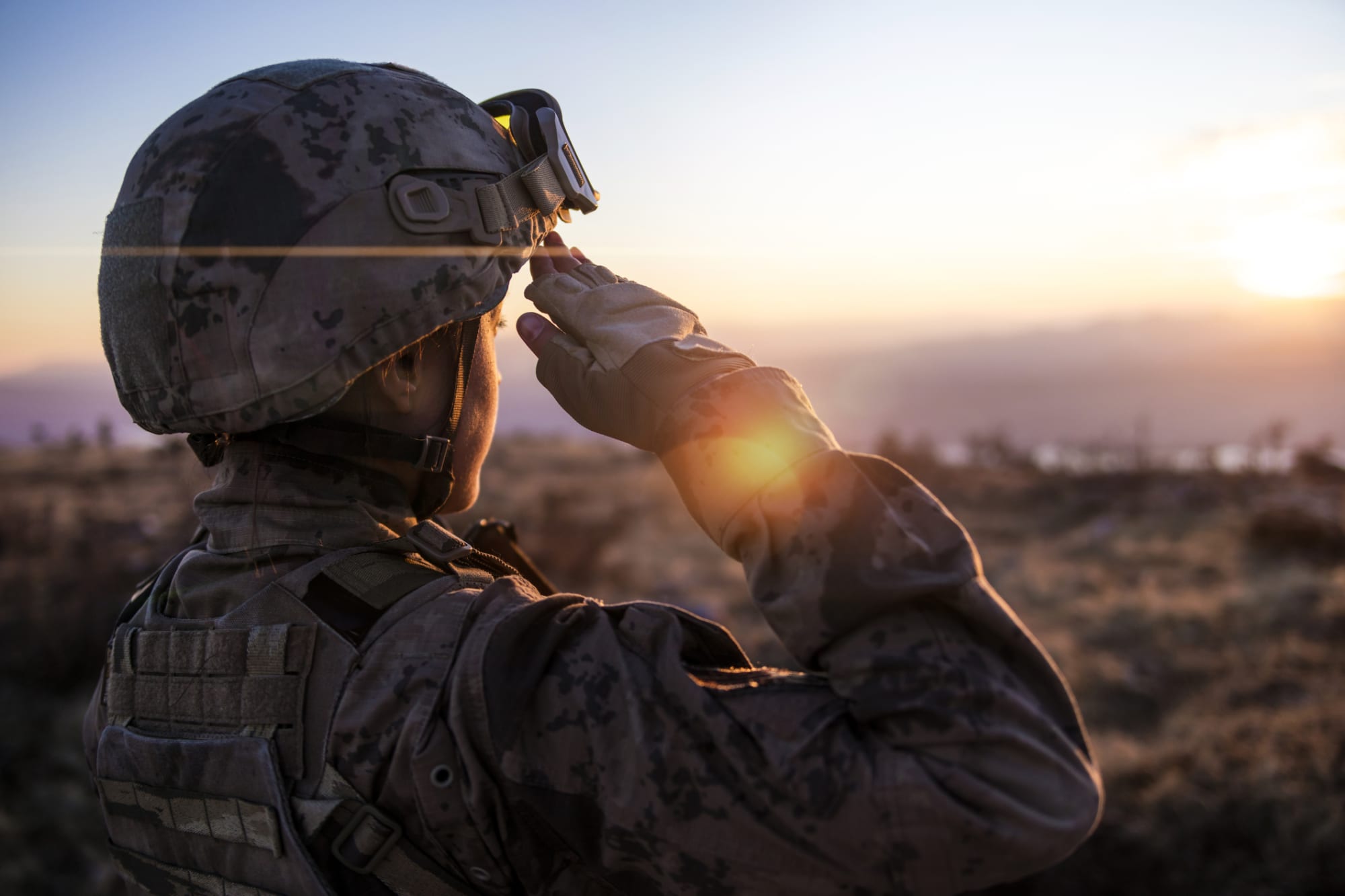Understanding Student Veteran Experiences on Campus
A student veteran is any student currently serving or have previously served in a branch of the armed forces. Considered nontraditional students, student veterans and military students may be older than traditional undergraduate students. They are also more likely to be married or have children and often have jobs off campus. Additionally, they often enter degree programs with transferable credits from college courses taken during active duty or from prior learning assessments.
In 2018, over 660,000 million veterans took advantage of educational and vocational rehabilitation benefits to expand their horizons and further their education. The military backgrounds of these student veterans can shape their perspective dramatically. With an increasing number of student veterans attending colleges and universities, understanding their experiences is vital.
Is It Student Veteran or Veteran Student?
The terms “student veteran” and “veteran student” can both be used to describe individuals pursuing higher education after serving in the military. However, of the two terms, the generally preferred label is “student veteran.”
Just as student-athletes are students first, so too are student veterans. Placing the word student before veteran in this phrase helps dismiss the idea that veterans are out of place in the classroom.
The word “veteran” honors a fundamental element of identity and experience that follows students into college and university settings. And the term “student veteran” highlights the reality that veterans who return to school belong in higher education settings.
Why Are Student Veterans Important?
Service members and student veterans bring valuable experiences and insights to college and university environments. The military student population features high diversity in age, physical ability, family status, and education level.
Student veterans can enhance classroom discussions with their unique background knowledge and perspectives, developed through military and cross-cultural experiences. Many student veterans also hold technical skills that can be applied across all sectors, which can increase innovation on campus and in the working world. Additionally, 2019 data from the Institute for Veterans and Military Families at Syracuse University and the Student Veterans of America shows that student veterans often boast higher GPAs and retention rates than non-veteran students.
As vital members of the population, veterans often support economic development in their communities. For example, as of 2012, veterans owned about 9% of all U.S. businesses. Veterans who aspire to be entrepreneurs often benefit from returning to school as student veterans.
For student veterans, degree programs can open the door to increased income equality. Education and training help student veterans access higher-paying jobs and achieve personal and career success.
Challenges for Student Veterans
Building Social Connections on Campus
Some non-veteran students treat student veterans as outsiders, which can make forming social connections difficult. Inquiring about violent deployment activities, for instance, can prove triggering and off putting. Thankfully, some of the top military-friendly colleges take action to support student veterans, helping them build positive social connections.
Affordability
Even with federal funding for student veterans and veteran scholarships, these learners can still struggle to pay college tuition fees. Holding transfer credits — as many student veterans do — can limit eligibility to some financial aid opportunities. Additionally, some VA benefits expire, and it is not always simple to figure out how to best use them.
Student Veterans Are Often Treated as a Monolith
The wide variety of student veterans’ needs requires institutions to see each individual and need as equally important — not all of these students are alike. Some student veterans may be dealing with physical or mental disabilities, while others may need extended orientation periods. Schools must provide resources and support based on this diversity of needs.
Lost Sense of Purpose/Direction
The military offers a deep sense of purpose to many service members. Regardless of their job, service members understand their roles and responsibilities. Upon transitioning out of the military, student veterans may lose that sense of purpose and struggle to identify their direction moving forward.
Loss of Structure
The rigidity and high level of structure are key aspects of the military’s culture. Service members have a clear understanding of their chain of command and points of contact. Higher education institutions are more complex in their structure; many resources and points of contact — such as faculty, teaching assistants, career counselors, tutors and tutoring centers, advisors, and various other resource centers — are available to support students.
Applying Post-9/11 GI Bill® Funding to Private Institutions and Graduate Schools
Using federal funding at private, graduate, or out-of-state schools requires the institution to enter into an independent agreement with Veterans Affairs. This process can prove difficult and time-consuming for student veterans seeking degree programs from specific institutions.
Resources for Student Veterans
Nearly all colleges and universities have at least one designated staff person or resource center devoted toward supporting student veterans and other military students. These resources often provide a first point of contact for student veterans transitioning into college or preparing for graduation. In addition, several national organizations help student veterans successfully integrate into college and earn their degree.
Student Veterans of America
With over 1,500 on-campus chapters across the country, SVA provides resources, networking opportunities, and advocacy support to all student veterans pursuing higher education.
Warrior-Scholar Project
WSP provides free college preparatory bootcamps, workshops, and lectures to mentor student veterans as they prepare to enter higher education.
Posse Veterans Program
This program provides training, funding, and a network of support for veterans interested in enrolling in a bachelor’s degree program, as well as current student veterans.
Service to School
S2S provides free test prep, virtual mentorship and networking, and interview practice to help student veterans apply for and enroll in college and university programs.
VA College Toolkit
The toolkit provides practical resources for student veterans, including information about the Yellow Ribbon Program. It also guides faculty and staff at higher education institutions in successfully welcoming and acclimating student veterans to campus.
Valuing and Supporting Student Veterans
Student veterans offer valuable and diverse perspectives, skills, and talents to colleges and universities. To create a campus environment that values and supports student veterans, colleges and universities must recognize the unique experiences and challenges they face.
By increasing awareness, offering comprehensive support services, collaborating with organizations, addressing financial challenges and actively involving student veterans in decision-making processes will not only enhance their educational experience but allow institutions to provide the necessary resources and networking opportunities.
It is through these concerted efforts that we can truly honor the contributions and sacrifices of our student veterans.
GI Bill® is a registered trademark of the U.S. Department of Veterans Affairs (VA). More information about education benefits offered by VA is available at the official U.S. government website at https://benefits.va.gov/gibill/index.asp.
Explore More College Resources

Best Online Military-Friendly Colleges of 2025
What’s a military-friendly college? Learn about the benefits of attending military-friendly online colleges and how they support military personnel, veterans, and family members.

by Nalea Ko
Updated December 2, 2024



